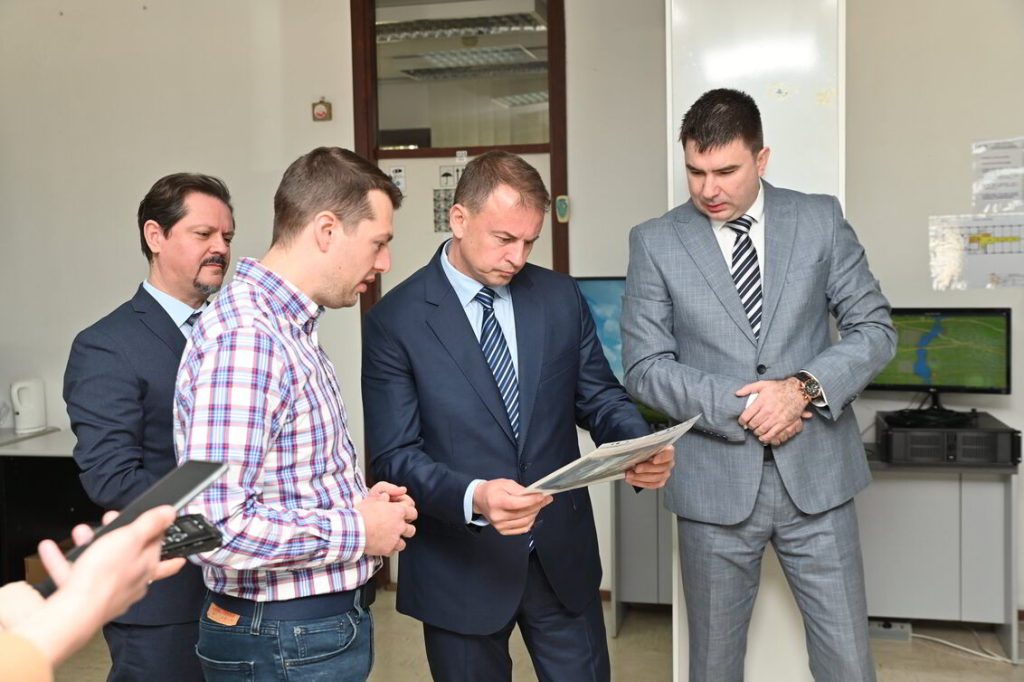On Wednesday 27.03.2024 The Minister of Economy of the Republic of Serbia, Slobodan Cvetković, visited the “Mihajlo Pupin” Institute.
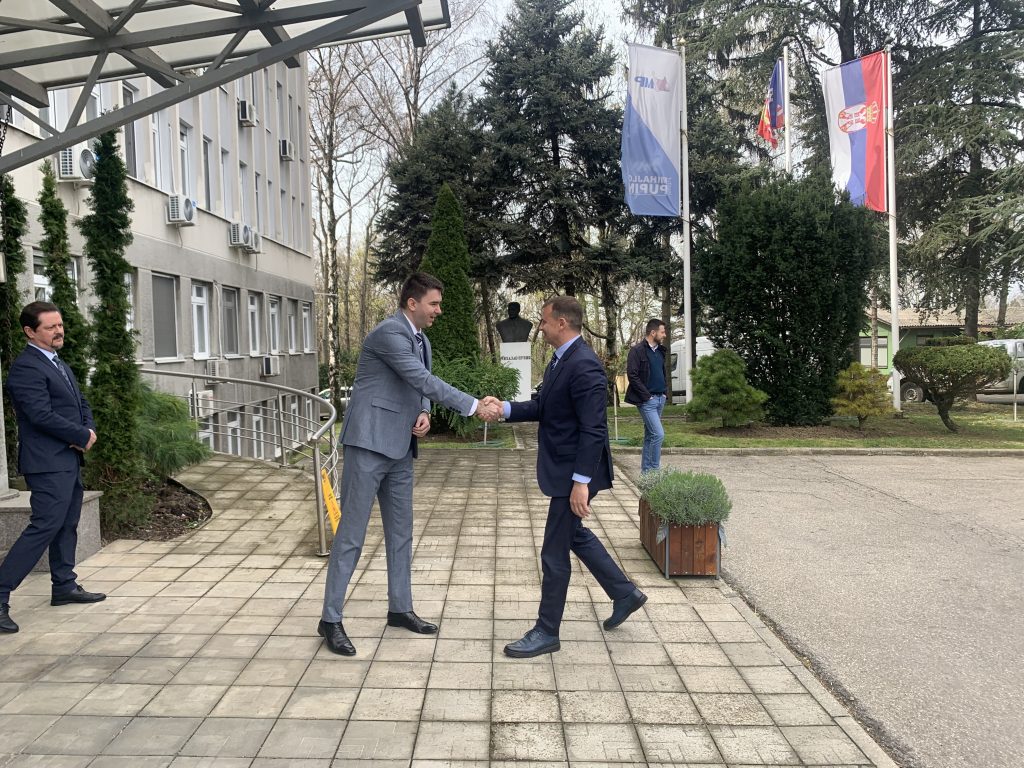
The aim of the visit was for the minister to familiarize himself with the work and products of the Institute, as well as to consider possible opportunities for establishing and improving cooperation between the economy and science on the local, regional and global market.
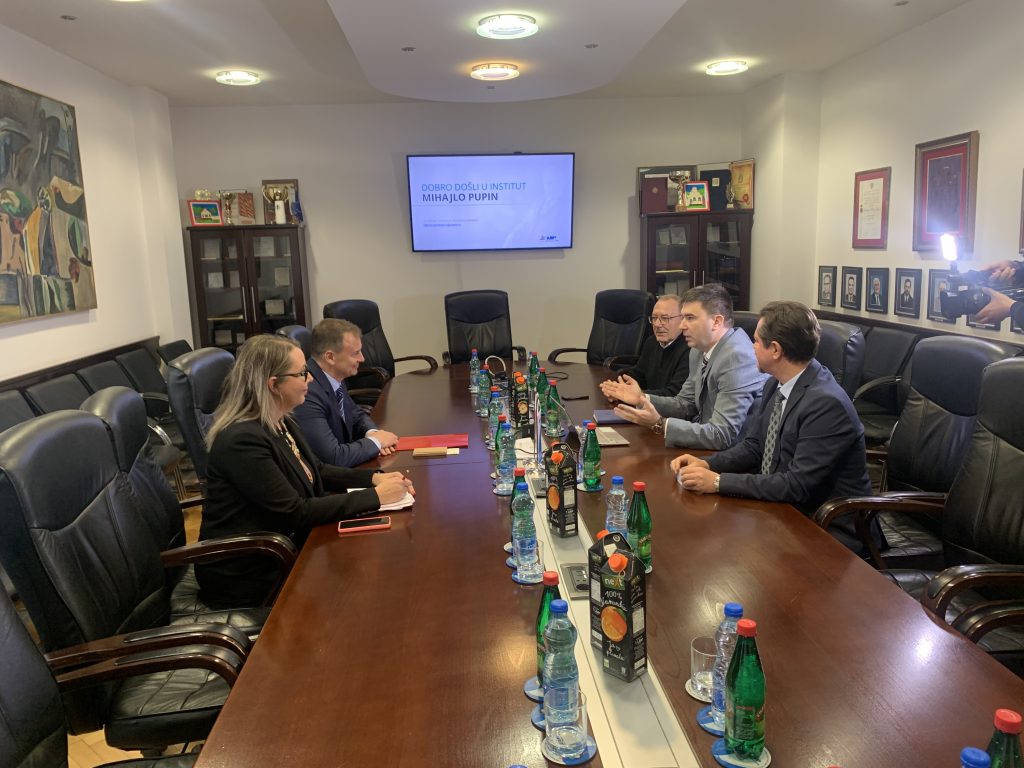
In front of the Mihajlo Pupin Institute, the minister was welcomed by the director of the Institute, Dr. Nikola Tomašević, B.Sc. and his assistant for finance and cooperation with the economy, Željko Stojković, B.Sc. Eng., and then our activities on the domestic and foreign markets were presented to the minister.
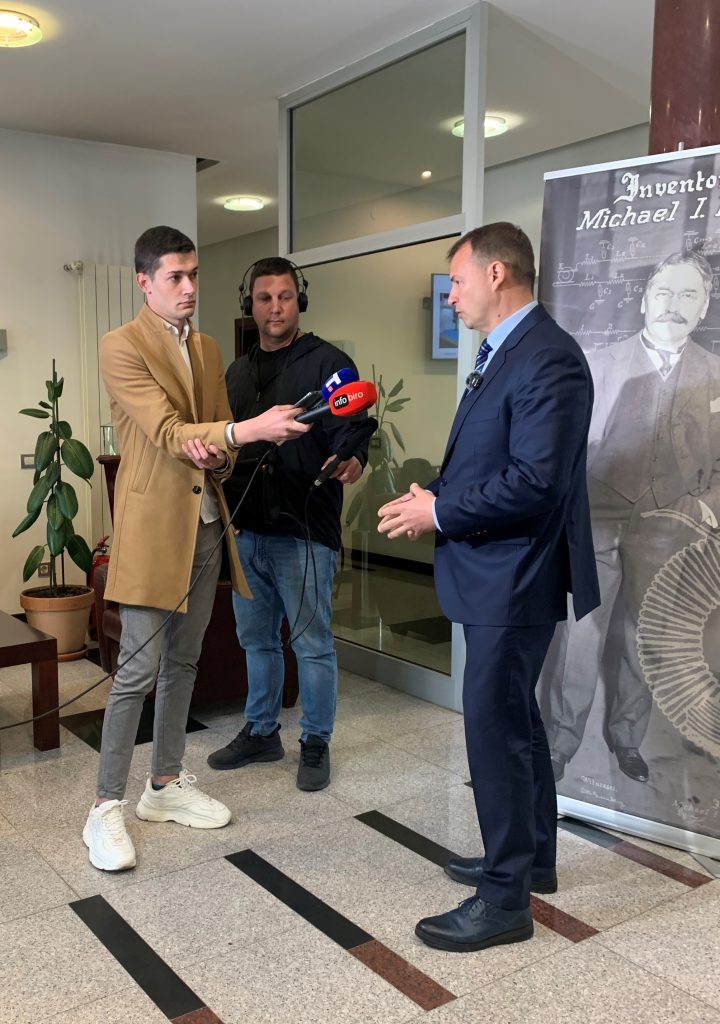
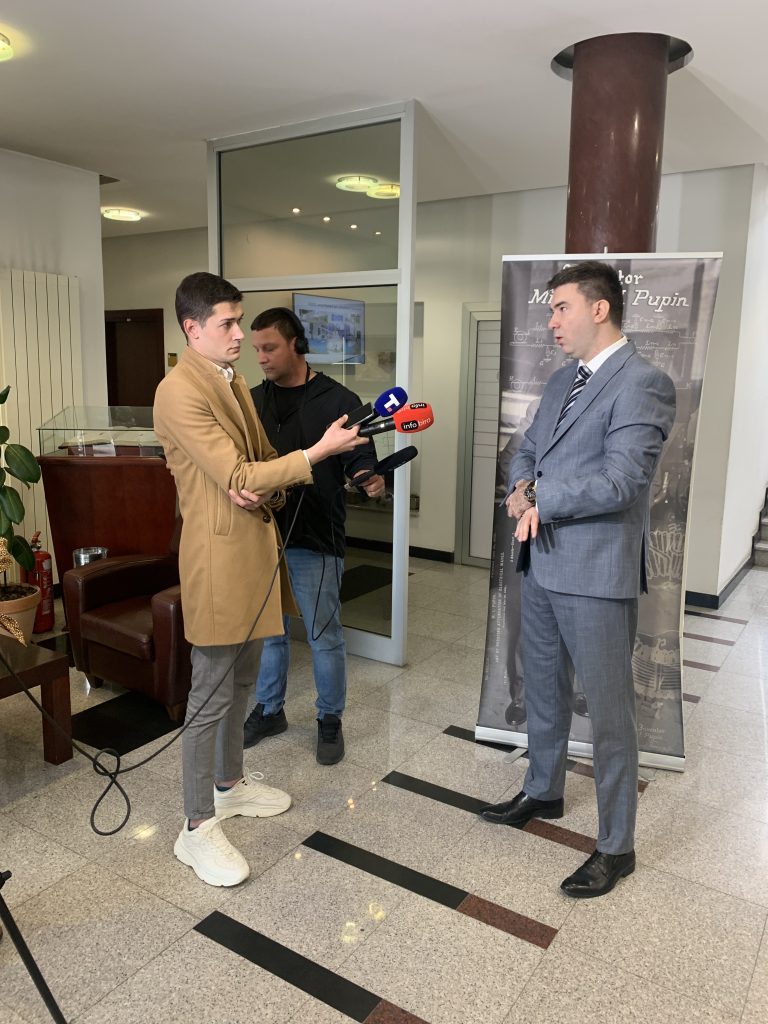
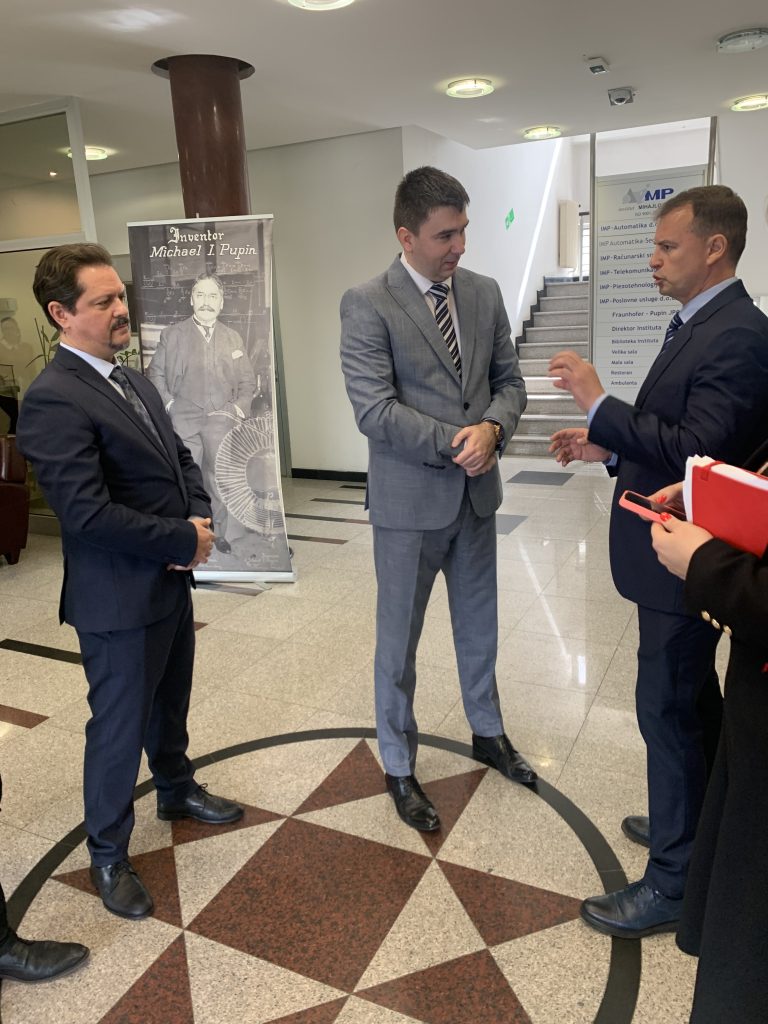
During the visit, various segments of the commercial program were presented to the minister, primarily training systems and simulators from the military program, such as NORA (training system for training cadets and recruits, conditioning artillery crews as well as tactical simulations of command staff) and TOPOT (trainинг system for training members the crew of the M84 tank), as well as various systems from the electric power industry program, such as a system for monitoring and analyzing vibrations, as an independent system and as an extension of the existing control systems of the IMP, a hydraulic and electronic system for the protection of turbines that are controlled by hydraulic executive elements ( SIL 3 certified), as well as a distributed system for management and regulation of the thermoblock, ready for installation in TE Morava in Svilajnac.
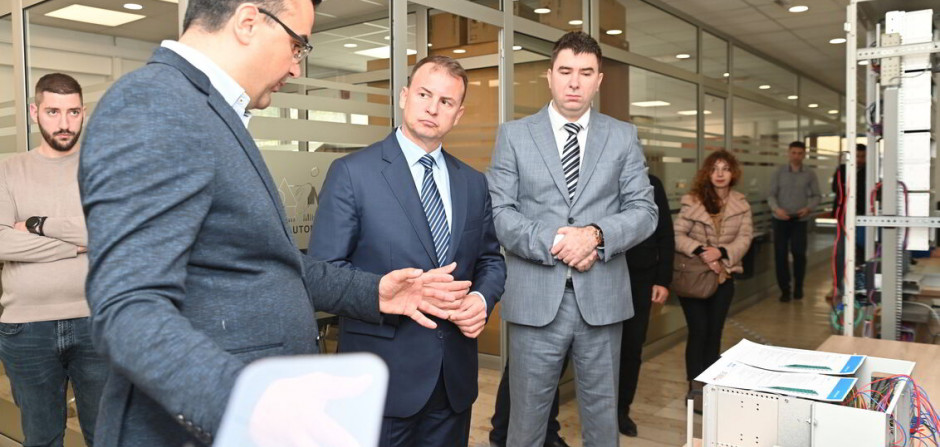
The minister pointed out that scientific institutes can have a serious impact on the economy, and that the economy is currently not fully utilizing all possible technological potential, as well as that the Serbian economy with such serious scientific institutes can be in a position to offer new achievements to the global market. On the other hand, our general director Dr. Nikola Tomašević emphasized that cooperation with the Ministry of Economy is of great importance for the commercialization of scientific and research results.
